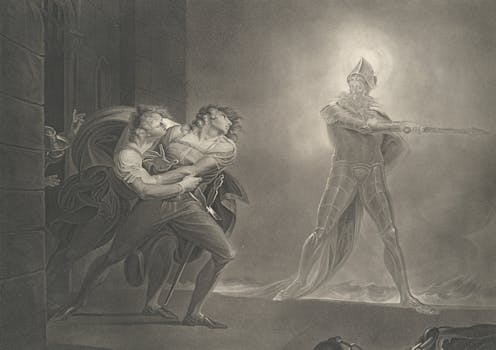Around 1600, speeches in English plays suddenly got shorter – and no one knows why
- Written by Kim Colyvas, Research Assistant, University of Newcastle

A speech in a play by Shakespeare or one of his contemporaries can be as short as a word or as long as several hundred, or anything in between. But what is the most common length?
There is an interesting new story emerging about the lengths of speeches in early modern plays. Staying away from Shakespeare himself for a moment, we can take Ben Jonson’s play Volpone (1607) and count the number of speeches and their lengths. The most common length is four words.
In the first scene of the play, Volpone asks if an entertainment was Mosca’s invention. Mosca says he will acknowledge his responsibility only if it has pleased Volpone, who says “It doth, good Mosca.” Mosca replies, “Then it was, sir.” Later in the same scene Corbaccio asks Mosca, “How doth your patron?” and “Does he sleep well?”
There are 1,412 speeches in Volpone and 166 of them (12%), are just four words long. There are more speeches of this length than any other length. Four words is, as we say, the “mode”.
The next most common length is five words: 9% of Volpone’s speeches are this length. Of the other 16 Jonson plays, 12 also have a speech length mode of four. The four plays that don’t are Every Man in his Humour, with a mode of five, Every Man Out of his Humour and Bartholomew Fair with a mode of six, and Tale of a Tub with a mode of nine.
It’s not just Jonson; it’s everybody. After 1602, four-word speeches are the most common kind across all the early modern plays that survive.
Curiously, just five years earlier, four-word speeches were very rare: the mode was nine-word speeches. The change happened in just five years, affected every writer, and we don’t know why.





